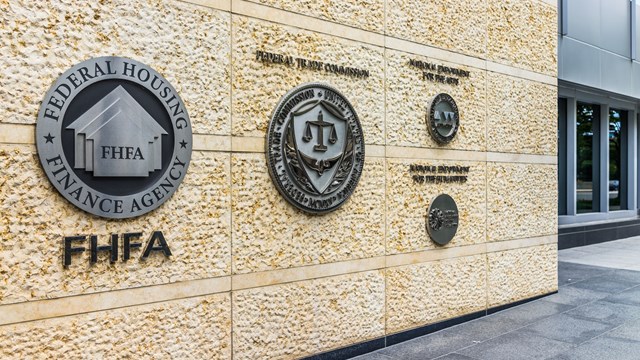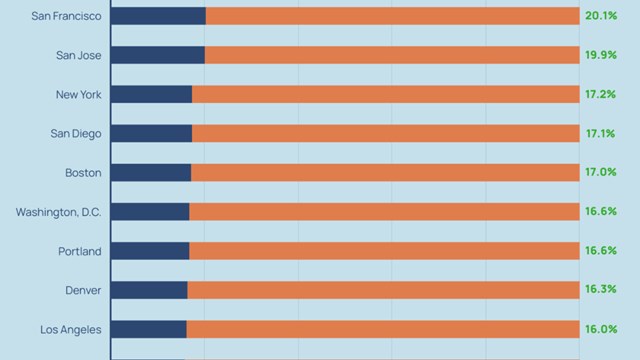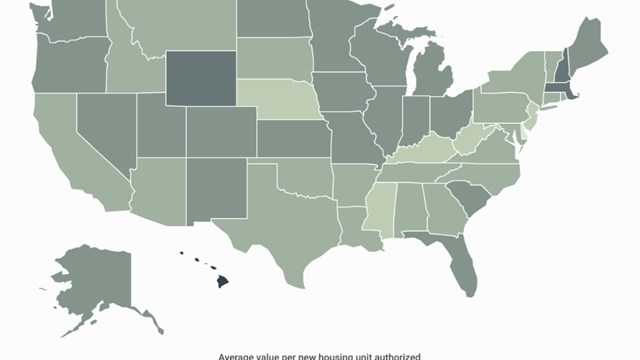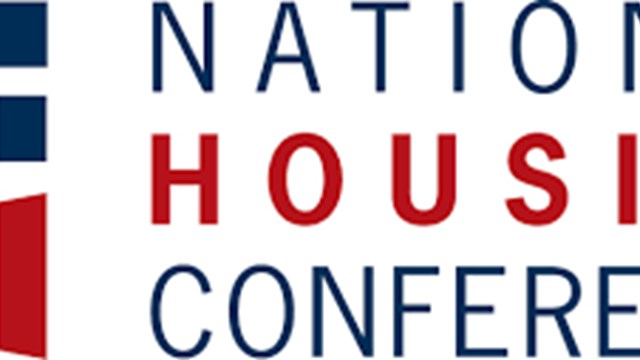Most people wouldn't know where to begin if they had to fight to keep the government from taking their home for redevelopment by a private developer. In one of many housing-related bills before the state Assembly, legislators are now considering this eminent domain scenario. Politicians in Trenton are working on a variety of housing-related bills, many of which will affect residents of co-ops and condos. The bills run the gamut of issues, from property owners' rights to safety issues such as overcrowding in residential housing.
A Look at the Bills
One annual piece of legislation proposed by lawmakers in Trenton would create a framework of laws aimed at bringing consistency to housing laws. That would-be framework of laws, known as the Uniform Common Interest Ownership Act, or UCIOA, has been a focus of groups like the Community Associations Institute of New Jersey (CAI-NJ) and homeowner advocacy organizations for many years. The push to have UCIOA become law has been going on for about a decade now, and some form of it has been adopted in about 16 states.
The Elusive UCIOA
The New Jersey Apartment Association (NJAA) is also involved in advocating for apartment owners, property managers and homeowners. The NJAA, as does its counterpart, CAI-NJ, serve its membership through government affairs advocacy, education and networking. Because government affairs advocacy is one of the main thrusts of the organization, NJAA, like many groups, lobbies state politicians in the interests of its members.
Both the NJAA and CAI-NJ employ lobbyists to further their organizations' agendas in the legislature. Such lobbyists meet with legislators to explain what their favored bills say, and how the bills benefit the organization's constituency, says Ronald L. Perl, an attorney for Princeton-based law firm Hill Wallack LLP and a CAI-NJ member of the UCIOA Task Force. "They also keep track of legislative hearings of interest to us, so that we can be there," he says.
While paid lobbyists look out for the interests of the organizations they represent, UCIOA is meant to fairly represent the interests of all homeowners living in planned developments.
Assembly bill A798, otherwise known as UCIOA, sponsored jointly by Assemblymen Wilfredo Caraballo, D-29, Peter J. Biondi, R-16, and Robert M. Gordon, D-38, was introduced in the Assembly's Housing and Local Government Committee early last year. The bill passed the Assembly in March 2006, by a 55-14-6 vote. It was referred to the Senate's Community and Urban Affairs Committee, where it still awaits action. The Senate's version of the bill is S805.
UCIOA is intended to bring a variety of somewhat inconsistent laws governing the different kinds of home ownership under a unified legislative framework.
"Under this would-be law, it wouldn't matter where you live," Perl says. "The Uniform Act provides a default provision for associations to operate under. It contains provisions for open meetings, the right to open records and dispute resolution. It hits all of the issues that are important to the homeowners' rights."
According to Perl, the reason UCIOA hasn't passed the legislature yet is, unfortunately, political. "This effort's been going on for 10 years," he says. "The main delay is that there is a small group of people with a very extreme owners' rights agenda, and they have been successful in holding up the process. They've been unwilling to compromise."
Capital Contributions and Management Standards
A recent snafu involving the courts and affecting homeowners is having an impact on condo associations that members of CAI-NJ hope will be short-lived. CAI-NJ's Legislative Action Committee (LAC) recently drafted and introduced A2822/S2188 in response to Micheve vs. Wyndham Place at Freehold, a court decision regarding capital contributions in a community. The bill would permit the imposition of a capital contribution upon the sale or resale of a unit. The bill passed the Assembly by a 68-5 vote in June 2006.
"Last year, the court ruled that condos couldn't [collect capital contributions]," Perl says. "We came up with an amendment to the state constitution that would authorize this practice to continue."
CAI's position is that condominium associations need working capital for their operations. The bill also would limit the discretion of condominium associations' imposition and collection of capital contributions by requiring that a capital contribution could only be imposed and collected in accordance with the terms and conditions of a condominium association's master deed or bylaws. The proposed law also would stipulate that capital contributions could not be increased simply by a resolution of a condominium association's board of trustees.
CAI-NJ also hopes to make a change in the overall professionalism of property managers. The organization is working on legislation that would require the certification of property managers, Perl notes. Assembly bill A476, sponsored by Assemblyman Christopher "Kip" Bateman, R-16, awaits action before the Assembly's Housing and Local Government Committee, and would establish a Community Association Manager Certification Standards Board. This board would be made up of nine members: five of whom shall be managers of community associations, two of whom shall be members of the Institute of Real Estate Managers (IREM), and two of whom shall be members of the Community Associations Institute (CAI). This board is charged with establishing standards, procedures and fees for the certification of persons engaged in the business of property management for common interest communities.
A bill that would inhibit improper sales or transfers of properties located in retirement communities to persons who are not age-qualified to reside in such communities cleared the Senate's Community and Urban Affairs Committee on May 10th of this year. The bill, S2274, sponsored by Sen. Leonard T. Connors Jr., R-9, now goes to the full Senate for approval.
Endorsed by CAI-NJ, the group proposed an amendment to the legislation requiring the purchaser of a home or unit in an age-restricted community to certify compliance with federal law.
"It simply seeks to preserve the integrity of age-restricted communities through better oversight," says Kenneth R. Sauter, Esq., chair of the CAI-NJ Legislative Action Committee and an attorney at Ramsey Berman, P.C.
The certification is to be recorded as an addendum to the deed in the appropriate county office. A person who purchases a housing unit from a party other than the developer or acquires a dwelling through an executor or administrator of an estate in an age-restricted community may not record a deed without the certification required by the bill.
Federal law permits age-restricted communities as an exception known as "housing for older persons" to the anti-discrimination provisions of the Fair Housing Amendment of 1988, provided that certain quotas are maintained of age-appropriate persons occupying the premises.
"Residents of age-restricted communities in Ocean County and elsewhere in New Jersey should have an expectation that future residents will adhere to age guidelines set forth when the community was created," added Sauter. "This bill will provide the necessary oversight for that to occur."
The Assembly version of the bill A3778, sponsored by Christopher J. Connors, R-9 and Brian E. Rumpf, R-9, has been referred to the Assembly Housing and Local Government Committee.
Another potential bill affecting homeownership concerns the threat of eminent domain. A3257, a bill regarding eminent domain taking of property, passed the Assembly last fall and currently is in the Senate introduced as S1975. Conor Fennessy, vice-president of government affairs for the New Jersey Apartment Association, says the NJAA has tried to walk the middle line of the eminent domain issue, striving to protect property rights and also trying to allow developers their rights.
Another bill NJAA is following is A3594/S2155, which concerns water submetering in multi-family properties. The mundane-sounding legislation could have a greater effect than its name seems to imply—as it could help to significantly "green" the state. If approved and made into law, the bill could save billions of gallons of water each year, as well as save residents money on their water bills.
"New Jersey is the last state left that doesn't allow submetering of apartments. This legislation would allow a property owner to bring in a vendor and install meters and bill each [apartment] on its usage," Fennessy says. "We estimate that two billion gallons of water would be saved each year if this bill were passed."
Such a move might even make water more affordable for all consumers in the state, given that the resource would be less scarce, thanks to more conservative use by consumers.
Another bill being discussed in Trenton is Assembly bill A470, a measure that would enable the creation of the Joint Committee on Housing Affordability. The committee would take a more comprehensive look at housing issues in New Jersey. "We're hoping that they'll use this new committee as a mechanism to broker a broader perspective on housing problems," Fennessy says. "Currently, there's no way to take a comprehensive look at housing-related legislation. There really isn't a mechanism to just look at housing."
NJAA officials are meeting with legislators to try to influence who will be appointed as members of the committee, Fennessy says. "We think this is a tremendous opportunity," he says.
Jonathan Barnes is a freelance writer and a frequent contributor to The New Jersey Cooperator.










Leave a Comment